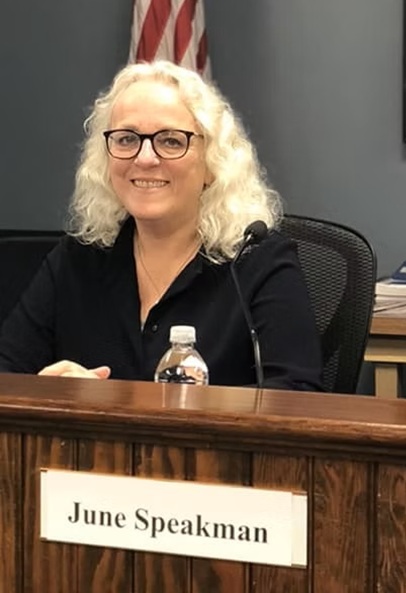It’s not just Medicaid and Medicare at risk.
This program for working-class Rhode Islanders has been cut.
By Rep. June S. Speakman and Sen. Pamela J. Lauria
Starting this month, enrollment notices will go out to 45,000 Rhode Islanders that will announce dramatic increases in the cost of their health insurance policies. These individuals and families are not eligible for Medicare or Medicaid and do not receive coverage from their employer. Instead, they purchase their policies from HealthSource RI, Rhode Island’s individual health insurance marketplace established by the Affordable Care Act. These enrollees include small business owners, self-employed Rhode Islanders and pre-Medicare retirees, among many others.

Rep. June S. Speakman
According to Protect Our Healthcare R.I., a coalition of organizations and individuals dedicated to protecting access to quality, comprehensive, affordable health care for all Rhode Islanders, monthly benchmark health insurance premiums for a 64-year-old couple with a shared annual income of $85,000 will quadruple, from about $600 a month to an estimated $2,408, eating up 34% of their total income. A 45-year-old making $27,284 (just above the limit for Medicaid) would see their annual premium payments grow by 387%, from $23 to $112 per month. On average, when the new bills arrive after the new year, the 6 out of 7 households enrolled in HealthSource RI plans who receive premium support will discover an estimated 85%increase in their premium payments.
Why the dramatic increase in premiums? While the hefty rate increases just approved by the Office of the Health Insurance Commissioner play a role, it’s primarily because the U.S. Congress and President Donald Trump decided to let the Enhanced Premium Tax Credit (EPTC) expire as of December 31, 2025. With the loss of the expanded tax credit to help reduce their insurance premiums, those monthly bills will be out of reach for many. HealthSource RI has estimated that the elimination of EPTCs will cause a decline in enrollment of 11,300, or more than 25%, from the current enrollment of 45,000. Other federal restrictions on eligibility and enrollment from the “Big, Beautiful Bill” will cause even more Rhode Islanders to lose coverage.
And we know that when insurance gets more expensive, younger, healthier people drop coverage, resulting in a sicker insurance pool and even more upward pressure on premiums. We know that people without insurance avoid preventive care, stay sicker longer and rely on emergency departments for even routine care. All of this puts further strain on the healthcare system and increases costs for us all.
Rhode Island has made tremendous progress in expanding access to health coverage. Today, more than 97% of our residents have insurance — one of the highest rates in the country. The EPTC program is part of that success story, building on the success of the Affordable Care Act and Biden-era enhancements. But many of the 40,000 Rhode Islanders whose out-of-pocket costs are reduced by the tax credit will find themselves unable to afford their policies come January and will once again join the ranks of the uninsured. Those who remain in coverage will have to make excruciating financial choices when it’s time to pay the monthly bills.
The elimination of these enhanced tax credits is another example—for Rhode Island, a $40 million example — of the federal government withdrawing assistance to working-class families. These families earn too much to qualify for Medicaid, do not get health insurance through work and do not earn enough to afford full-price health insurance in the private marketplace. The EPTC was created to be a lifeline to affordable, high-quality insurance for these families — but Republicans in Congress have taken that lifeline away — denying tax credit support to working families while giving huge tax advantages to the wealthy.

Sen. Pamela J. Lauria
In 2025, state policymakers took major steps to address Rhode Island’s health care crisis. But we do not have the resources to fill the $40 million hole created by inaction at the federal level. Congress must act now to renew the tax credit program by passing the Protecting Healthcare and Lowering Costs act, introduced in August and cosponsored by Senators Reed and Whitehouse, so that thousands of Rhode Islanders and millions of other Americans will not have to choose between buying health insurance and paying their utility bills this winter.
Rep. June S. Speakman (D-Dist. 68, Warren, Bristol) serves as a member of the House Health and Human Services Committee. Sen. Pamela J. Lauria (D-Dist. 32, Barrington, Bristol, East Providence), who works as a primary care nurse practitioner, is vice chairwoman of the Senate Health and Human Services Committee.
